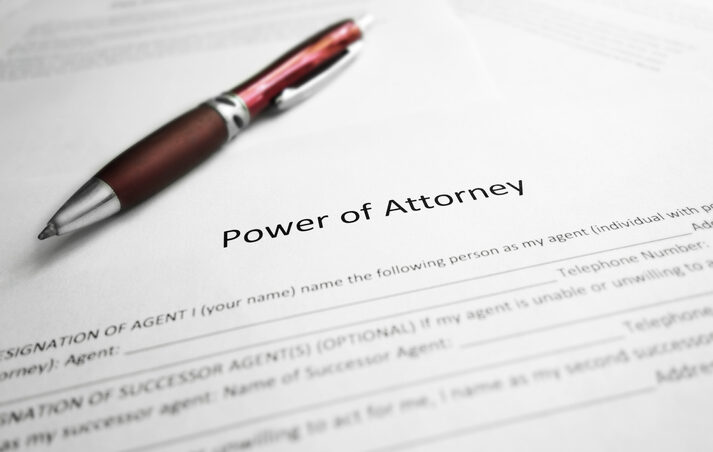A power of attorney (POA) is a legal document that allows you to name an agent to make financial decisions in the event of an unfortunate event. But how do powers of attorney work? Do you need one for yourself?
How do powers of attorneys work and what is the right type of document to fit your family’s needs for both finances and healthcare?
This will help you to avoid conservatorship, guardianship and other related court proceedings. Bay Citizen’s recent article, “5 Tips for Creating an Efficient Power of Attorney,” provides some tips to help you through the process.
- Know the Different Types. There is a durable POA that remains effective even after you’re incapacitated and a Healthcare POA.
- Designate a Trustworthy Agent. This agent will make major financial decisions on your behalf, so consider the agent’s character. Your agent should be someone you trust, so be sure of their honesty. They should also be competent and familiar with financial matters and related topics.
A suitable agent should also be available, meaning you should choose someone who lives nearby. This will make them efficient when the time to decide on your behalf comes.
- Be Sure to Provide Relevant Information to Your Agent. Disclose financial information, like bank accounts, investments and debts owed. You should also share your medical information and history, along with your care wishes and what should happen upon your death.
This should include the date you created and signed the document, contact information and the effective date. Doing this will help ensure that the agent makes an informed decision when the time comes.
- Consider a Successor Agent. People can relocate, making it difficult to make decisions from afar. For this reason, you should name a successor agent who will step in if the primary agent cannot do so. Consider the factors you did when selecting the first-choice agent when choosing one.
If you don’t have a successor agent, you should specify in the POA how your successor agent will be chosen when you are disabled or incapacitated. Failure to do so can invalidate the POA if your agent is unable or unwilling to serve.
- How do Powers of Attorney Work in detail? Consult an Experienced Estate Planning Attorney. An experienced estate planning law attorney will guide you and ensure that the document is clear and legally binding. They’ll customize and update your POA when necessary.
Being disabled or incapacitated can create a challenge when making an important decision. This is worse if you don’t have a POA. Ask an experienced Naperville estate planning attorney to set this up for you and your loved ones.
Reference: Bay Citizen (July 20, 2023) “5 Tips for Creating an Efficient Power of Attorney”



